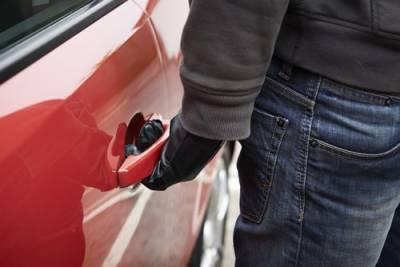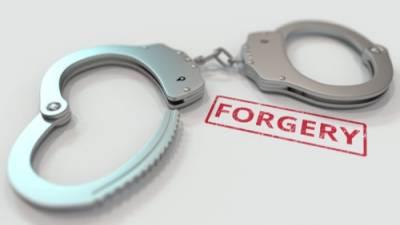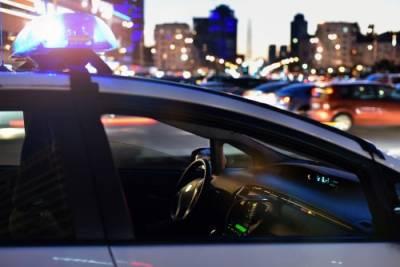Recent Blog Posts
What If I Am Charged with Theft for Having a Stolen Vehicle But I Did Not Know it Was Stolen?
 Video games and television make theft of an automobile seem like an inconsequential act. In reality, being accused of stealing a car can change your entire life. Penalties are severe and may include significant jail time. In Illinois, merely being in possession of stolen goods can lead to theft charges. Some people accused of stealing a vehicle thought that they bought the vehicle legally. When they find out that the vehicle was stolen, they are shocked.
Video games and television make theft of an automobile seem like an inconsequential act. In reality, being accused of stealing a car can change your entire life. Penalties are severe and may include significant jail time. In Illinois, merely being in possession of stolen goods can lead to theft charges. Some people accused of stealing a vehicle thought that they bought the vehicle legally. When they find out that the vehicle was stolen, they are shocked.
If you or a loved one have been charged with motor vehicle theft, contact a criminal defense lawyer right away. Your attorney can start gathering evidence to aid in your defense.
You May Be Facing Felony Charges Punishable By Up To 7 Years’ Incarceration
The consequences of a theft conviction depend on the value of the item that was allegedly stolen. Stealing a candy bar from a store is obviously not considered as serious as stealing a vehicle worth thousands of dollars. In Illinois, theft of a motor vehicle or possession of a stolen motor vehicle is punishable by 3-7 years in prison. Being in possession of a stolen vehicle valued at more than $10,000.00 can lead to felony charges.
Can I Get a DUI for Marijuana in Illinois?
 Illinois legalized recreational marijuana in 2020. However, the drug is still regulated by the state. It is also illegal to drive a vehicle while under the influence of cannabis. If you are pulled over by police and they suspect you of “drugged driving” or driving under the influence of marijuana, you can be arrested and charged with driving under the influence (DUI).
Illinois legalized recreational marijuana in 2020. However, the drug is still regulated by the state. It is also illegal to drive a vehicle while under the influence of cannabis. If you are pulled over by police and they suspect you of “drugged driving” or driving under the influence of marijuana, you can be arrested and charged with driving under the influence (DUI).
Drugged Driving DUIs
Marijuana affects cognitive abilities, decision-making, and reaction time. Consequently, legislators have made it illegal to operate a car while under the influence of marijuana. You can be charged with DUI for using marijuana in two ways:
-
Illinois law makes it illegal to drive under the influence of an intoxicating substance. If police believe you are intoxicated and unable to drive safely, they can arrest you and charge you with DUI.
What Happens If You Are Accused of Forgery in Illinois?
 Forgery refers to the falsification of documents. In Illinois, forgery is a crime punishable by significant penalties, including imprisonment. You could be charged with forgery if you allegedly sign someone else’s name on a financial document or use deception to commit theft. If you or a loved one were charged with forgery, you should know that the state of Illinois takes forgery very seriously. You or your loved one could be facing life-altering consequences.
Forgery refers to the falsification of documents. In Illinois, forgery is a crime punishable by significant penalties, including imprisonment. You could be charged with forgery if you allegedly sign someone else’s name on a financial document or use deception to commit theft. If you or a loved one were charged with forgery, you should know that the state of Illinois takes forgery very seriously. You or your loved one could be facing life-altering consequences.
Understanding Forgery Charges
When someone lies or fabricates information or signatures, they can be accused of forgery. Just the act of possessing a forged document can lead to criminal charges. For example, if you need a co-signer on a credit card or loan application and you sign someone else’s name, you could be charged with forgery. Forgery may also involve writing checks on a closed account, using a forged check, or falsifying mortgage documents.
Should I Take a Plea Deal if I am Charged With a Crime in Aurora?
 Being charged with a crime is a confusing, frightening experience. Many criminal defendants have little to no experience in the criminal justice system. They are unaware of their rights and options. Plea bargains are often especially confusing. Many criminal defendants are unsure of whether they should accept a plea bargain or fight for an acquittal. They do not understand the potential benefits and risks of accepting a plea deal.
Being charged with a crime is a confusing, frightening experience. Many criminal defendants have little to no experience in the criminal justice system. They are unaware of their rights and options. Plea bargains are often especially confusing. Many criminal defendants are unsure of whether they should accept a plea bargain or fight for an acquittal. They do not understand the potential benefits and risks of accepting a plea deal.
If you or a loved one have been charged with theft, drug manufacturing, reckless driving, or another criminal offense, contact a criminal defense lawyer right away. Your attorney can evaluate your specific situation and explain the advantages and disadvantages of accepting a plea deal.
What is a Plea Bargain?
When someone is accused of a crime, there are a few possible outcomes. Sometimes, the prosecution drops the charges, and the case is dismissed. This can happen if there is insufficient evidence against the suspect, procedural errors, or violations of the suspect’s rights. The suspect can plead “not guilty” and the case will likely go to trial. During a trial, the judge and jury find the defendant guilty or not guilty based on the evidence and arguments presented by both sides.
Will I Get a DUI If I Fail a Field Sobriety Test in Illinois?
 Most charges for driving under the influence (DUI) result from traffic stops. Often, field sobriety tests are used to assess a driver for signs of intoxication prior to the DUI arrest and subsequent charges. If you are like many people, you may wonder: Will I get a DUI if I fail a field sobriety test? What if I failed because of a medical problem? Are field sobriety tests even accurate?
Most charges for driving under the influence (DUI) result from traffic stops. Often, field sobriety tests are used to assess a driver for signs of intoxication prior to the DUI arrest and subsequent charges. If you are like many people, you may wonder: Will I get a DUI if I fail a field sobriety test? What if I failed because of a medical problem? Are field sobriety tests even accurate?
Field Sobriety Tests and Drunk Driving Charges
When a police officer suspects someone of driving under the influence, he or she may use two types of tests to evaluate the person for signs of intoxication: chemical blood alcohol tests such as a breathalyzer and field sobriety tests. The results of these two preliminary tests are often used to establish probable cause for a DUI arrest.
Failing a field sobriety test may give a police officer sufficient reason to put a driver in handcuffs and take him or her to the police station for further assessment. However, failing a field sobriety test does not necessarily mean that DUI charges will become a DUI conviction. There are many different DUI defense strategies that may be used to avoid conviction.
Is Underage Drinking Really that Big of a Deal?
 Everyone knows that the drinking age is 21 in Illinois. However, this does not prevent many teens and young adults from drinking alcohol before age 21. Underage drinking can lead to driver’s license suspension and even jail time in some cases. Tragically, statistics show that eight teenagers in the U.S. die every day in drunk driving crashes. To be clear, underage drinking can lead to life-changing consequences. If you or your child has been charged with an alcohol-related crime, speak to a juvenile criminal defense lawyer for legal advice right away.
Everyone knows that the drinking age is 21 in Illinois. However, this does not prevent many teens and young adults from drinking alcohol before age 21. Underage drinking can lead to driver’s license suspension and even jail time in some cases. Tragically, statistics show that eight teenagers in the U.S. die every day in drunk driving crashes. To be clear, underage drinking can lead to life-changing consequences. If you or your child has been charged with an alcohol-related crime, speak to a juvenile criminal defense lawyer for legal advice right away.
Underage Drinking and Alcohol Possession in Illinois
It is unlawful for anyone younger than 21 years old to purchase, receive, or consume alcohol. The one exception to this law is alcohol consumption in an underage person’s home or at a religious service when they are under their parent’s supervision. Using a fake ID to buy alcohol is also a criminal offense in Illinois. Violating these laws could lead to Class A misdemeanor charges.
Understanding Illinois Controlled Substance Schedules
 If you or a loved one were charged with possession, sale, or manufacture of a controlled substance, you may be searching for information about what to expect. Drug charges vary dramatically based on the type of drug in question and the amount of the substance the person allegedly manufactured, sold, or possessed. Understanding what you are up against when you are charged with a drug-related crime can be difficult. Read on to learn about drug scheduling in Illinois and the potential penalties you or your loved one may face if convicted of the drug charge.
If you or a loved one were charged with possession, sale, or manufacture of a controlled substance, you may be searching for information about what to expect. Drug charges vary dramatically based on the type of drug in question and the amount of the substance the person allegedly manufactured, sold, or possessed. Understanding what you are up against when you are charged with a drug-related crime can be difficult. Read on to learn about drug scheduling in Illinois and the potential penalties you or your loved one may face if convicted of the drug charge.
Illinois Classifies Drugs Based on Potential for Misuse and Medical Benefits
Many drugs that are sold or used illegally have legitimate medical purposes. For example, opiates like Vicodin and OxyContin are powerful pain relievers often used to relieve pain after surgery. Even fentanyl, an extremely potent synthetic opioid, is used lawfully to relieve pain in cancer patients. However, using these drugs without a doctor’s authorization is a criminal offense.
Facing a Second DUI in Illinois? You May Be Able to Avoid Conviction
 Driving under the influence of drugs or alcohol (DUI) is a criminal offense in Illinois. However, the penalties for DUI vary considerably. If someone is arrested for DUI without any prior DUI arrests or convictions on their record, they usually face fines, probation, and temporary loss of their driving privileges. Often, first-time DUI offenders without aggravating circumstances are able to avoid jail time. However, the penalties for a second DUI are harsher. This is why it is so important to build a powerful defense strategy if you are arrested for DUI a second time.
Driving under the influence of drugs or alcohol (DUI) is a criminal offense in Illinois. However, the penalties for DUI vary considerably. If someone is arrested for DUI without any prior DUI arrests or convictions on their record, they usually face fines, probation, and temporary loss of their driving privileges. Often, first-time DUI offenders without aggravating circumstances are able to avoid jail time. However, the penalties for a second DUI are harsher. This is why it is so important to build a powerful defense strategy if you are arrested for DUI a second time.
Criminal and Administrative Consequences for a Second DUI Offense in Illinois
Any criminal offense is serious, however, some offenses are punished more harshly than others. If you were arrested for DUI and you have a previous DUI conviction on your record, you will face additional penalties. These penalties include:
2021 Update: U.S. Supreme Court Revisits Life Sentences for Juvenile Murders
 Originally Posted February 16, 2016 ------ Updated November 29, 2021
Originally Posted February 16, 2016 ------ Updated November 29, 2021
Laws are always changing. This is one reason it is important to work with a knowledgeable criminal defense attorney if you or your child are charged with a crime. Amid the concerns about excessive use of force and other police actions in the last few years, Illinois has updated and expanded several statutes related to the juvenile criminal justice process. Among these changes is a new law that prohibits police from using deceptive interrogation tactics when they are questioning minors.
The legislation, which went into effect January 1, 2021, bars police from lying to juvenile criminal defendants. For example, police cannot claim to have evidence they do not actually have or lie about statements or confessions made by alleged co-conspirators. Lawmakers hope that these actions will help reduce the incidence of false confessions and wrongful imprisonment.
What is an Illegal Search and Seizure?
 As an American, we have certain rights that are protected by the Constitution. Among these crucial rights is the right to be free from unreasonable searches and seizures of personal property. In other words, government officials, including police, must have a valid reason to search an individual’s property. However, what qualifies as an “unreasonable search” is not always easy to ascertain.
As an American, we have certain rights that are protected by the Constitution. Among these crucial rights is the right to be free from unreasonable searches and seizures of personal property. In other words, government officials, including police, must have a valid reason to search an individual’s property. However, what qualifies as an “unreasonable search” is not always easy to ascertain.
When Can Police Search My Home?
Police officers are limited in their ability to search a person’s house, apartment, mobile home, or other residence. Most of the time, police officers must get a search warrant before they can search a home. A search warrant will list the parameters of the search including the areas police are allowed to search and how long they have to complete the search.
There are exemptions to the search warrant requirement. Police may enter a person’s home and search for illegal materials or evidence of a crime without a search warrant under the following circumstances:







